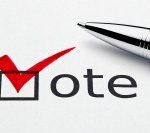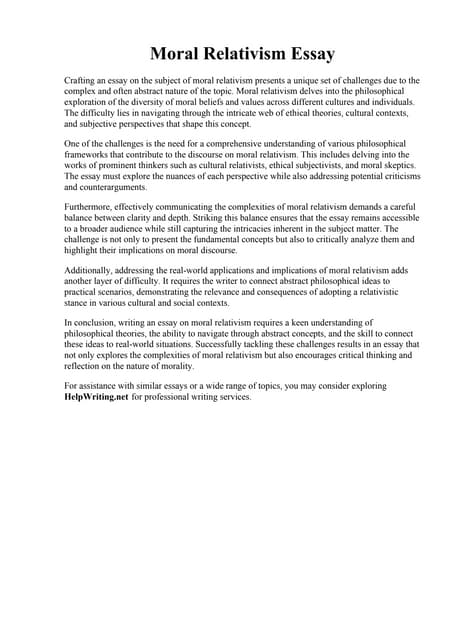For the citizens of the United States,the presidential campaign is upon us again; another season of passionate debates, name-calling, and political table talk. How many times have you heard the following statements regarding presidential candidates, “he/she is a good speaker” or “that candidate gives excellent speeches”?  Good communication skills are certainly an important trait for a president but it seems that for some voters, rhetorical skill is one of the most significant skills a president must have. Others may argue that rhetorical ability is overrated and prefer other traits such as determination and transparency. Still others desire determination and transparency in their president but still value strong rhetorical ability. In this installment of Table Talk, we will examine the role of rhetoric in the epistemology of the voter, specifically how rhetoric contributes to the voter’s knowledge which is then utilized in the voter’s decision making.
Rhetoric is the art of argumentation and persuasion. It is a tool used by a speaker in public debates with the objective of persuading an audience to consider or accept a position or a set of positions. Rhetoric has an epistemology (a knowledge component) because rhetoric involves the exchange of ideas between the speaker and the listener with the goal of foster belief in the latter by the creative use of words by the former. Political debates and speeches specifically involve a candidate’s attempt to get the listener to believe what the speaker is claiming to be true with the goal that the person hearing the claims will choose him or her for office. These exchanges are crucial to presidential elections and make up the most salient and often overlooked philosophical aspects of the election process.
Voters make numerous decisions during the campaign season. Various issues are presented to voters: the economy and taxation, education, foreign affairs, immigration, gay marriage, abortion rights, health care, and monetary reform, among many others. Based on their beliefs regarding these issues and others, voters then decide which candidate’s platform best represents their views on these issues. Subsequently, decisions about which candidates earn the vote are made based on these beliefs. Throughout this epistemic process, voters form beliefs and subsequently make decisions about candidates through a variety of media. For example, voters learn about a candidate’s positions by reading the newspaper and talking to friends. But one of the most influential medium is, arguably, what they hear from the candidates themselves. This is why debates, forums, town hall meetings, pep rallies, and visits to commercial establishments are widely used by candidates to persuade voters.
Aristotle is arguably the most famous classical philosopher to address the subject of rhetoric. In his book, Rhetoric, Aristotle defined the idea as the ability to see what is possibly persuasive in every given case. This does not mean that the rhetorician will persuade every time but it does mean that he or she possesses the expertise to attempt to persuade each time they have the opportunity. Aristotle believed that persuasion can occur in three possible ways: through the character of the speaker, through the emotional state of the hearer, or through the argument itself (sometimes referred to by the Greek terms, ethos, pathos, and logos respectively). The first way pertains to the credibility of the speaker. If the hearer trusts the speaker, there is a greater chance that the hearer will be convinced by the arguments advanced by him or her. The second way pertains to the disposition of the hearer. If the hearer is sad or anxious, their emotional state will distract them from the speaker’s attempt to persuade. The third way pertains to the logical content of the speaker’s arguments. Aristotle addresses the epistemic aspect of rhetoric when he states, “But since rhetoric exists to affect the giving of decisions-the hearers decide between one political speaker and another….” Rhetoric aids in the voter’s thought process which is translated into decisions at the polls. The speaker presents arguments and the hearer must decide whether these arguments are rationally and/or emotionally persuasive to incite the hearer to vote for that speaker.
ability to see what is possibly persuasive in every given case. This does not mean that the rhetorician will persuade every time but it does mean that he or she possesses the expertise to attempt to persuade each time they have the opportunity. Aristotle believed that persuasion can occur in three possible ways: through the character of the speaker, through the emotional state of the hearer, or through the argument itself (sometimes referred to by the Greek terms, ethos, pathos, and logos respectively). The first way pertains to the credibility of the speaker. If the hearer trusts the speaker, there is a greater chance that the hearer will be convinced by the arguments advanced by him or her. The second way pertains to the disposition of the hearer. If the hearer is sad or anxious, their emotional state will distract them from the speaker’s attempt to persuade. The third way pertains to the logical content of the speaker’s arguments. Aristotle addresses the epistemic aspect of rhetoric when he states, “But since rhetoric exists to affect the giving of decisions-the hearers decide between one political speaker and another….” Rhetoric aids in the voter’s thought process which is translated into decisions at the polls. The speaker presents arguments and the hearer must decide whether these arguments are rationally and/or emotionally persuasive to incite the hearer to vote for that speaker.
Despite its importance, Aristotle believed that rhetoric has its drawbacks and these drawbacks can be seen in modern politics. After all, how many candidates state their platform persuasively, promise to institute their platform once in office, and yet do not fulfill their campaign promises once in office? Candidates also exaggerate the benefits of their platform and the deficiencies of their opponents’ platform in order to win votes. This method of campaigning has been common in modern-day presidential campaigns but it was also a rhetorical device used by the Sophists–contemporaries of Aristotle. Aristotle and Plato strongly argued that the Sophists were deceivers and their deceits were products of rhetoric.
Candidates can be strong rhetoricians but lack other important presidential attributes such as governing experience, clear purpose, consistency, collaboration, and the like. Some voters prioritize a candidate’s speaking abilities over all other attributes. Whether this is a deficit or not on the part of voters is not the point. The point is that rhetoric plays a vital role in the belief-forming and decision-making process of the voter. Voters need to take time and think about this epistemic process. After all, epistemology is vital to our lives. As Paul Pardi correctly stated in his article, What is Knowledge?, “But of all the things to spend time on, it seems thinking about how we come to know things should be at the top of the list given the central role it plays in just about everything we do.” Hopefully, voters can apply this statement when they go to the polls in 2012.







